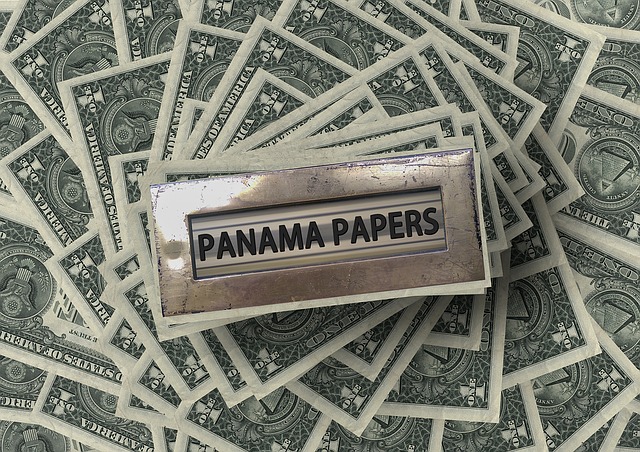Introduction To Panama Papers
Panama papers are the leaked documents which contain the attorney-client information of various international entities which were leaked in 2015 by an anonymous source. It is one of the major leaks in the history of the world economy. These documents were created by a Panamanian law firm and corporate service provider Mossack Fonseca.
Mossack Fonseca is the world’s fourth-biggest provider of offshore services. It has worked with more than 3,00,000 entities. Over 11.5million documents and 2.6 terabytes of information has been obtained from Mossack Fonseca’s documents. These documents show the countless ways in which rich people can exploit secretive offshore tax regimes. Information related to prime ministers like Vladimir Putin, James Cameron, and Nawaz Sharif has been leaked.
On 3rd April 2016, the German newspaper Süddeutsche Zeitung was the first to publish the story of a leak about Panama papers. Panama papers displayed the cases of dodging enormous tax liabilities and money laundering. The database contains information of more than two lakh shell companies which are set up by Mossack Fonseca. Due to incomplete data, the information could not be verified about all the illegal transactions.
How did it affect India?
Anurag Kejriwal, who was the former President of Delhi Lok Satta Party and Shishir Bajoria an industrialist from West Bengal, currently a BJP Leader were the prime reasons. The records show Anurag Kejriwal holding two private establishments in Panama- The Nedstar Foundation and The Prurak Foundation and owned a company in the British Virgin Islands in 2007 with his wife Uttara Kejriwal. They had the Power of Attorney for Biscay Overseas and were directors at Newington group. On the other hand, Shishir Bajoria possessed two Isle of Man organizations however not the one attributed to him in the leaked papers.
Businesspeople like Kushal Pal Singh who is the CEO of DLF, Vinod Adani brother of Gautam Adani, Chairman, and CEO of Apollo tires Onkar Kanwar and Sameer Gehlaut who is chairman and founder. DLF revealed to Indian Revenue Department that it had invested into foreign organizations inconsistency with LRS Scheme which was set up in 2004. Onkar Kanwar’s relatives have been responsible for owning offshore organizations while not living in India and compiled with the law where they were compiled to inform.
From Bachchan family, names of Amitabh Bachchan and Aishwarya Rai Bachchan have been seen. Actor and Producer Ajay Dagan are also among the people. On 21st August, there was a report which explained that he is a director of two organizations.
Around 500 Indian residents seem to be mentioned in the Panama papers.
What was the response of the Indian Government?
The Indian government has made a special investigative unit of officers from the Central Board of Direct Taxes and it’s Foreign Tax and Tax Research Division, the Financial Intelligence Unit and Reserve Bank of India. The team of officers visited Panama and a few other countries for collecting information.
The Indian revenue department was facing difficulties while working on incomplete data. The authorities were in touch with Panama through discretionary channels without TIEA (Tax Information Exchange Agreements).
It wasn’t appropriate to take legal action with incomplete data. The finance minister’s website shows the Indian Government is pushing the deal of tax data exchange agreement or TIEA. The government would be finalizing the tax data collection and exchange as soon as possible. Some media sources say that it would complete by the end of 2017 or the first quarter of 2018. The Panama Papers were undisclosed by the International Consortium of Investigative Journalists (ICIJ) and few other media associations.
Laws that have been violated under Panama Leaks
According to the Indian Laws, Indians can’t incorporate companies in foreign places because remittances outside India were not allowed before 2004. The RBI introduced a scheme in 2004 called as Liberalised Remittance Scheme which permitted people to remit up to $250,000 in phases.
These remittances could be for many purposes like gifting, buying shares, etc. The people were facing a lot of problems regarding this issue. In 2010 Reserve Bank of India came up with a notification which prohibits setting up a company abroad by individuals but they can buy shares according to Liberalised Remittance Scheme.
There was another notice by the Reserve Bank of India in 2013 which allowed Indian residents to invest directly in joint ventures through the Overseas Direct Investment route. So basically, forming any company overseas by an Indian can be considered legal only if it was done after the year 2013.
The laws which have been violated in the case are:
Violation of RBI’s Liberalised Remittance Scheme.
The Incorporation of Companies Overseas.
Acquisition of the majority shares of overseas companies in contravention of FEMA rules.
The investigation has just started and the conclusion or the outcome of the investigation is yet to come.

